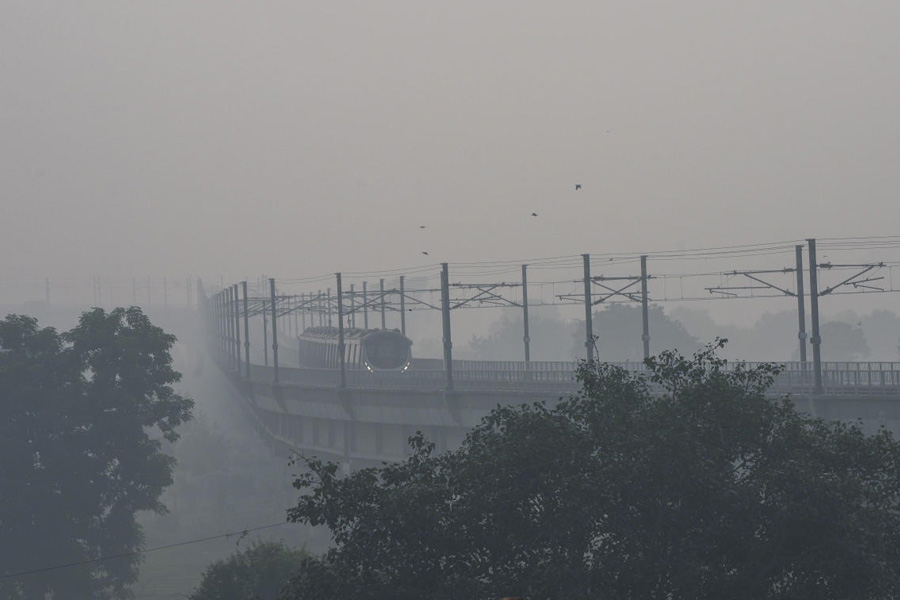Stop open burning of waste, water dusty roads and cover construction sites so dust particles do not spread — these are among the mitigation measures that can offset the impact of worsening air quality.
A drop in air quality can impact anyone but those with chronic lung and heart diseases or allergic rhinitis are more at risk, said doctors.
Worsening air quality weakens the body’s defence mechanism and makes people vulnerable to respiratory trouble. Metro has been reporting how the city’s air quality has worsened over the past few days.
At least three air quality monitoring stations, run by the Central Pollution Control Board (CPCB), have recorded a drop in the air quality from “satisfactory” on Diwali night to “moderate” on Friday and “poor” on Saturday night.
The trend has been sustained.
“Studies have shown that open burning of solid waste, and road and construction dust are major contributors to air pollution in Calcutta. The authorities must identify the places where waste is burned in the open and stop the practice,” said Abhijit Chatterjee, a professor of environmental sciences at Bose Institute.
“During winter people burn waste at night or in the morning to stay warm. These are also the times when temperatures are lower than the rest of the day and the pollutants remain trapped in the air close to the ground.”
Chatterjee, who specialises in air pollution and climate change, said sprinkling water on roads twice a day helps prevent re-suspension of road dust.
At 6am on Monday, the air quality was “poor” in Ballygunge and “moderate” at the six other monitoring stations — in Bidhannagar, Fort William, Jadavpur, Rabindra Bharati University (BT Road campus), Rabindra Sarobar and Victoria Memorial.











